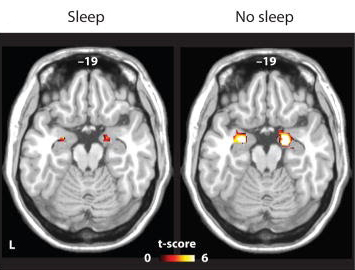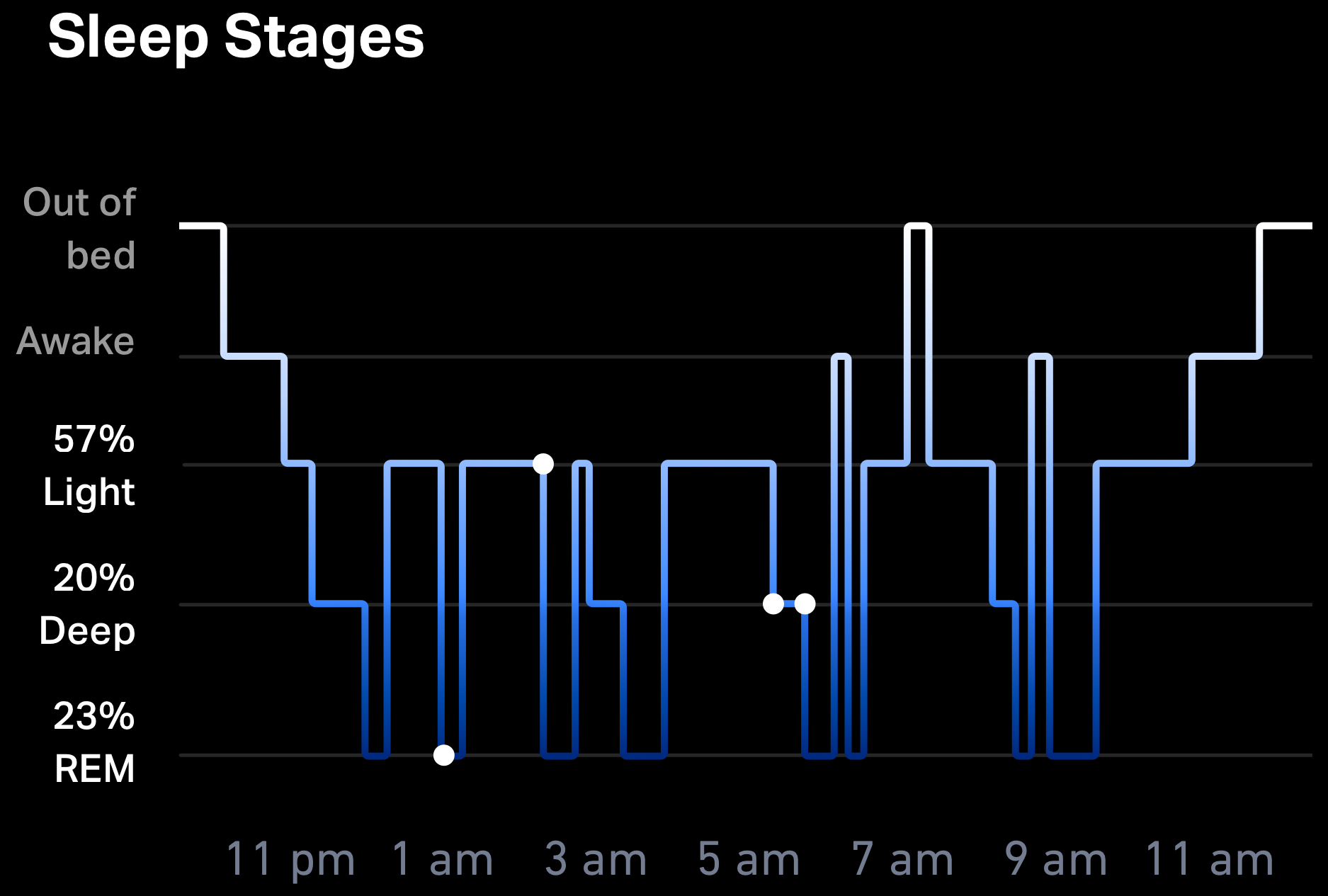


Why You Should Prioritize Sleep During Stressful Times

There’s a lot happening in the world right now. Americans report feeling more stressed in their daily lives than ever before. Focusing on sleep has never been more important. Not only can sleep calm your anxiety, but it can also boost your immune system and help your mental/physical health. Learn more about the importance of prioritizing sleep during stressful times.
Sufficient sleep will put you in a better mood
Has a bad night of sleep ever made you grumpy, irritable or short-tempered? If so, it probably won’t come as a surprise to you that sleep has a huge impact on your mood. Research shows that even partial sleep deprivation makes you more likely to be sad, stressed out, or frustrated.
Researchers from the University of Pennsylvania reduced sleep of 16 young adults by 33%, to an average of just under 5 hours per night. After one week, the subjects reported feeling more stressed, angry, sad, and mentally exhausted. Alternatively, sufficient sleep can boost a positive mood. Subjects from the same study who resumed normal sleep after a week reported a dramatic improvement in mood.
In addition, lack of sleep seems to be associated with greater emotional reactivity. Emotional reactivity refers to the situation when our immediate emotional reactions are difficult to control. Increased amygdala activity can cause this. Amygdala is a part of our brain, located deep in the temporal lobe. It is the integrative center for emotions, emotional behavior, and motivation. Research suggests that sleep deprivation causes increased amygdala activity which leads to the emotion of anger. In other words: a lack of sleep boosts negative mood and emotional reactivity.
The image below shows the effect of sleep deprivation on emotional brain reactivity really well. The left brain shows the amygdala with sleep. As you can see, the activity is low. The right brain shows the amygdala without sleep. Without sleep, the amygdala activity is high, resulting in the emotion of anger.

Image: The impact of sleep deprivation on emotional brain reactivity and functional connectivity. Source: NCBI
Sleep keeps you healthy
Sleep may just be one of the best medicines there is. A 2019 study, conducted by German researchers, found that sleep improves the body’s ability to fight off an infection. The study focused on immune cells, known as T cells, which battle infections. As soon as T cells spot a virus-infected cell, they activate sticky proteins known as integrins that can kill the virally infected cell.
To discover how sleep impacts T cells, the German researchers brought in 10 healthy volunteers. The volunteers spent two nights in a sleep lab: the first night they were allowed to sleep, the second night (approximately 2 weeks later) they had to stay awake all night. The researchers compared the T cells from the two different nights. They found that T cells from sleeping volunteers showed significantly higher levels of integrin activation than those from waking volunteers. This proves that sleep has a beneficial effect on T cells which boosts the immune system.
Quality sleep also improves the immune system’s response time. During sleep, we produce cytokine, a protein that functions as chemical messengers for regulating immune systems. Cytokine production happens when we cycle through all four sleep stages. We must complete this cycle at least 5 times per night in order to produce enough cytokine, or else the immune system won’t have what it needs to kill a virus.
Other ways you can boost your immune system:
Apart from focussing on quality sleep, there are other ways to boost your immune system. Harvard Medical School recommends the following healthy-living strategies:
-
Eat a diet high in fruits and vegetables: They're high in nutrients and antioxidants that your body needs for optimal functioning
-
Exercise regularly: exercise helps immune cells regularly regenerate
-
Try to minimize stress: long-term stress throws off immune cell functioning
Sleep reduces stress
According to Fast Company, repeated stress can stimulate our fight or flight tunnel vision. The fight or flight response refers to a specific biochemical reaction that humans experience during intense stress. The nervous system releases hormones that cause changes to occur throughout the body.
When your body goes in the fight or flight response due to acute stress response, cortisol (primary stress hormone) is released. This response increases your heart rate, slows digestion, and changes various other sympathetic nervous functions. In short, when cortisol builds up in your blood, it wreaks havoc on your mind and body and it makes it harder for you to fall asleep.
A great way to measure if your body is in a fight-or-flight mode is to monitor your Heart Rate Variability (HRV): the time interval between heartbeats in milliseconds. Why? HRV is a reflection of the fight or flight response. When you’re relaxed, the interval between heartbeats is higher. When you’re feeling stressed and you’re in the fight-or-flight mode, your HRV will be lower. The Pod Pro allows users to track their HRV. Measuring your HRV every night can help you understand the impact of stress levels on your sleep.
Not getting enough sleep when you’re feeling stressed can contribute to decreased mental and physical well being, resulting in even more stress and lack of sleep at night. It's a vicious cycle. Here are a few of our tips to break this cycle:
-
Use temperature to wind down: Repeated stress can cause muscle tension. Warming your body can help stimulate blood flow and relax tight muscles.
-
Exercise during the day: According to Johns Hopkins, people who exercise at a moderate intensity level for at least 30 minutes a day can see an improvement in sleep quality that same night.
-
Meditate to clear your mind: A short meditation of even 10 minutes can result in better sleep.
Sleep improves your mental health
Sleep and mental health go hand-in-hand. Sleep deprivation affects your mental health and people with mental health problems are more likely to have sleep disorders.
There are two types of sleep: Non-Rapid Eye Movement (NREM) and Rapid Eye Movement (REM). During a typical night, we cycle through non-REM and REM sleep every 90 minutes. The image below shows an example of a sleep cycle.

Image: different sleep stages. Source: Eight Sleep
Non-REM sleep consists of three different stages. During these three stages, body temperature drops, muscles relax and blood pressure and breathing rate drop. Non-REM stage 3 is the moment when the deepest sleep occurs. This stage also produces physiological changes that help boost immune system functioning. During REM sleep, people start dreaming and the brain becomes more active. Studies report that REM sleep enhances learning and memory, and contributes to emotional health.
Understanding what happens during our sleep, it’s no wonder that sleep deprivation creates chaos in the brain, and can lead to mental illnesses. Examples of mental illnesses as a result of sleep deprivation are depression, bipolar disorder, anxiety disorders, and ADHD.
Matthew Walker, professor of neuroscience and neurology at UC Berkeley, states that sleep deprivation and mental illness may go both ways: “I firmly believe that sleep loss and mental illness is best described as a two-way street of interaction, with the flow of traffic being stronger in one direction or the other, depending on the disorder. I am not suggesting that all psychiatric conditions are caused by absent sleep. However, I am suggesting that sleep disruption remains a neglected factor contributing to the instigation and/or maintenance of numerous psychiatric illnesses, and has powerful diagnostic and therapeutic potential that we are yet to fully understand.”
Conclusion
In short, sleep is extremely important, especially during these stressful times. Make sure to prioritize sleep to stay healthy and sane. For optimal sleep, check out the Eight Sleep Pod, which will help you understand your sleeping patterns by tracking your sleep.